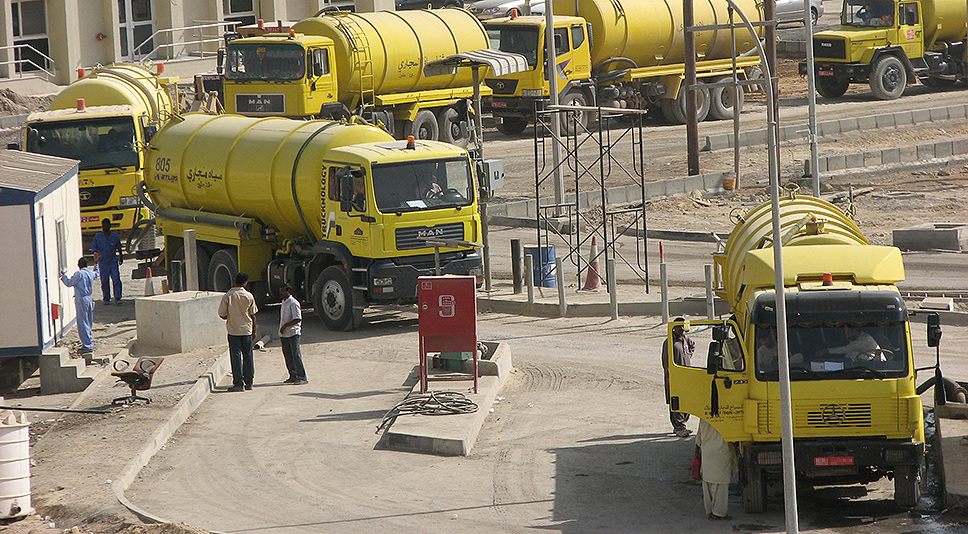Muscat, the capital of Oman, is a beautiful, ancient city and a major port on the Gulf of Oman with a history dating back to the 6th millennium BCE. Muscat was built on rocky areas surrounded by the Al Hajar Mountains. Unfortunately, this topography has made it difficult to rectify a problem shared by other old-world cities that were built without specific corridors for utilities. Muscat doesn’t have a modern sewage system connecting all its residences, government and commercial properties.

Muscat, Oman
In Oman, the majority of cities use septic and holding tanks to collect sewage water, and, as a result, distinctive yellow tankers travel around suctioning wastewater into their tanks and transporting it to sewage treatment plants. The Haya Water Company, under a concession agreement with the government, provides this service to over 325,000 people, connecting all areas of Muscat, and surrounding governorates, with sewage treatment in a nearby waste water treatment facility.

Haya Water Trucks
Facility Access Control and Fee Collection
Haya Water's wastewater treatment facility charges tanker trucks a fee for entry. This is a high-volume facility, and initially manual collection of fees was creating long lineups of vehicles at the gate. Delays were a service issue for users of the facility, and without an audit system there was potential for losses to the operator. With a large number of returning vehicles they needed a fast, automated collection system that would optimize throughput at the entrance to the plant. The site integrator selected IRD iToll® software and lane hardware as the solution.

IRD’s truck tolling system processes vehicles rapidly
Passive RFID (radio frequency identification), using IRD iToll system software as the integration platform, is used for electronic fee collection for vehicles entering the wastewater treatment facility. The iToll System is designed for accurate and auditable high-volume toll collection with integrated reporting. All waste water vehicles are equipped with RFID tags which act as ‘enablers’ allowing only those vehicles registered in the system with a valid account and with sufficient funds to enter the facility. The RFID tags are tamper-proof and attached to the windshield of each tanker. Every RFID tag sold is associated to one vehicle, one vehicle class, and one prepaid account that is continually monitored. A fixed fee is deducted for each trip through the entry lane, which is operated in unattended mode without mechanical barriers to improve traffic throughput. License Plate Recognition (LPR) Cameras are used to capture human-readable video of front license plates for any potentially violating vehicles.

AVI reader, lane signals and variable message sign
Outcomes
Haya Water has the goal of establishing a modern wastewater system that provides Oman’s citizens with technology for operating, managing, and maintaining the wastewater network. The treated effluent from their facilities will help replenish a limited resource, finding use in agricultural irrigation, golf courses, industrial reuse, aquifer recharge and potable water. The technology that enables them to protect the environment will evolve, perhaps even displacing the familiar yellow tankers, but in the meantime, an effective truck tolling system allows them to manage their facilities efficiently and recoup costs.



